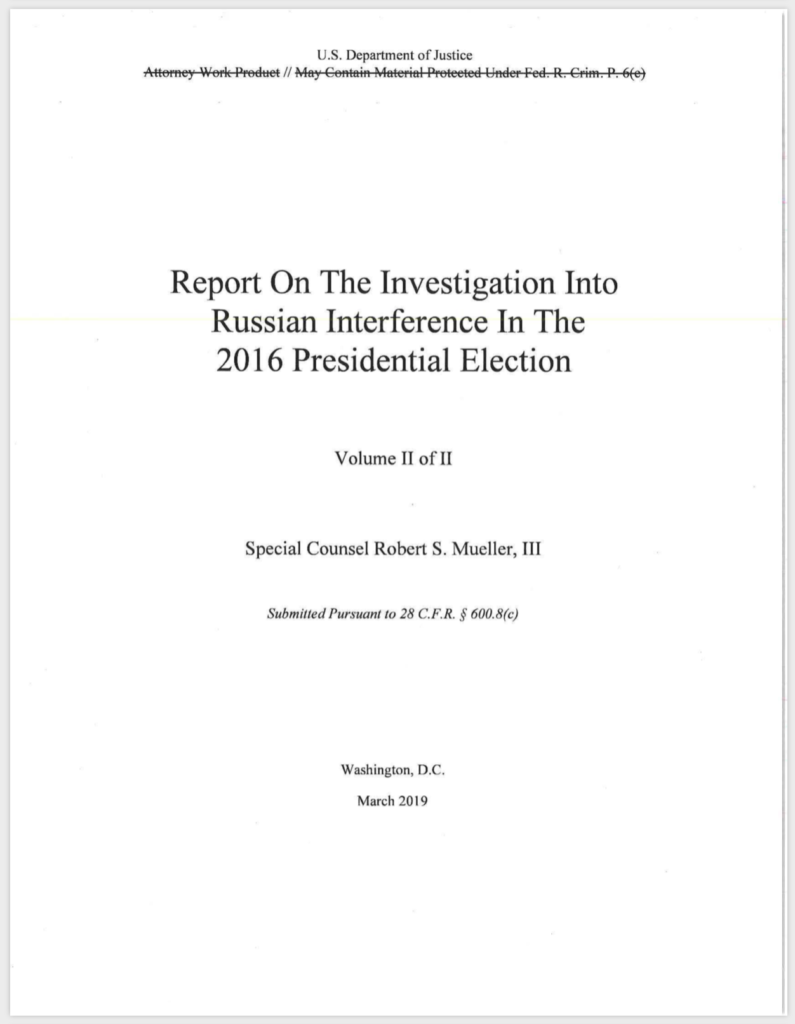
Some time ago I recused myself from joining political discussion on Facebook. I’m convinced that the political content we post on Facebook, no matter how salutary a contribution we think it will make to the conversation, makes an even more salutary contribution to the profiles and algorithmic precision used by the Russians and their domestic fellow travelers to manipulate and undermine our political discourse and those who participate in it.
Social networks ought to be a powerful forum for political discussions and debates, but Facebook is a poisoned environment. Even though I know that my good friends and their good friends can participate in debates there without risk of suddenly switching sides, that doesn’t mean their emotions won’t be manipulated algorithmically. More importantly, it doesn’t mean that their words, ideas and emotions won’t be harvested and used to analyze and manipulate the minds of people like them, which is the heart of what Facebook does. That’s pretty much what happened in 2016 and what is likely to happen in 2020 given who is in charge at Facebook, the government, the Republican Party and Russia.
So on Facebook I confine my participation to politically anodyne arts, culture and social matters. However, having just finished reading the Mueller Report, I couldn’t help myself and made my first political post in a long time. The Report is more shocking than it has been given credit for, and my Facebook friends, especially those who still use the platform for political purposes, really need to read the document, the second half in particular.
The first part of the report understandably has received the most attention. The idea of a U.S. president being elected with the active, and probably decisive, intervention of Russia is the province of fiction rather than actual politics, a mind-boggling shock that many of us have still not gotten over (and some still do not believe). The possibility that the candidate and his campaign actually colluded with that intervention ought to be catastrophically distressing, whatever your views about the legal technicalities around the term collusion.
Yet if the this part of the report provides grounds for suspicion, even in its heavily redacted form, it is nonetheless anti-climactic. It unmistakably says that Mueller’s team did not turn up compelling evidence of a legally actionable conspiracy. That might just mean that the conspirators were smart enough to cover their most damning tracks, but those tracks are not in this report, as much as Trump’s detractors would like to find them there.
Volume II of the report is another story, however. Obstruction of justice is a lot less sexy than conspiring with Russians to get elected, but it is here that the Mueller case is firm.
Where the report’s first half mostly concerns aides and relations, the second half is all about Trump himself. More importantly, where the first half is explicitly inconclusive, the second half is just as explicitly decisive. If you read all the details, not just the few sentences that get recited in the reporting and by politicians, Mueller’s conclusion cannot be clearer: In a jaw-dropping recitation of particulars, the report shows a dozen and more ways that Trump attempted to impede the Russia investigation and influence witnesses in order to protect himself — often in statements and activities that were fully public. And in a lengthy legal analysis immediately after that bill of particulars, Mueller makes a detailed case that this behavior was illegal and not protected by the president’s constitutional authority. It seems certain that only deference to Justice Department policy prevented him from issuing an indictment.
There is no ambiguity at all. Whatever you think about Trump and Mueller, Mueller’s obvious intention was to tee up Congress for impeachment and/or prosecutors for post-presidency criminal proceedings. Anyone who claims the conclusions are uncertain either hasn’t read the document or — believe it or not — is lacking forthrightness.
Download the report here.

Glad I found this. Agree completely.
As you’ve now demonstrated.